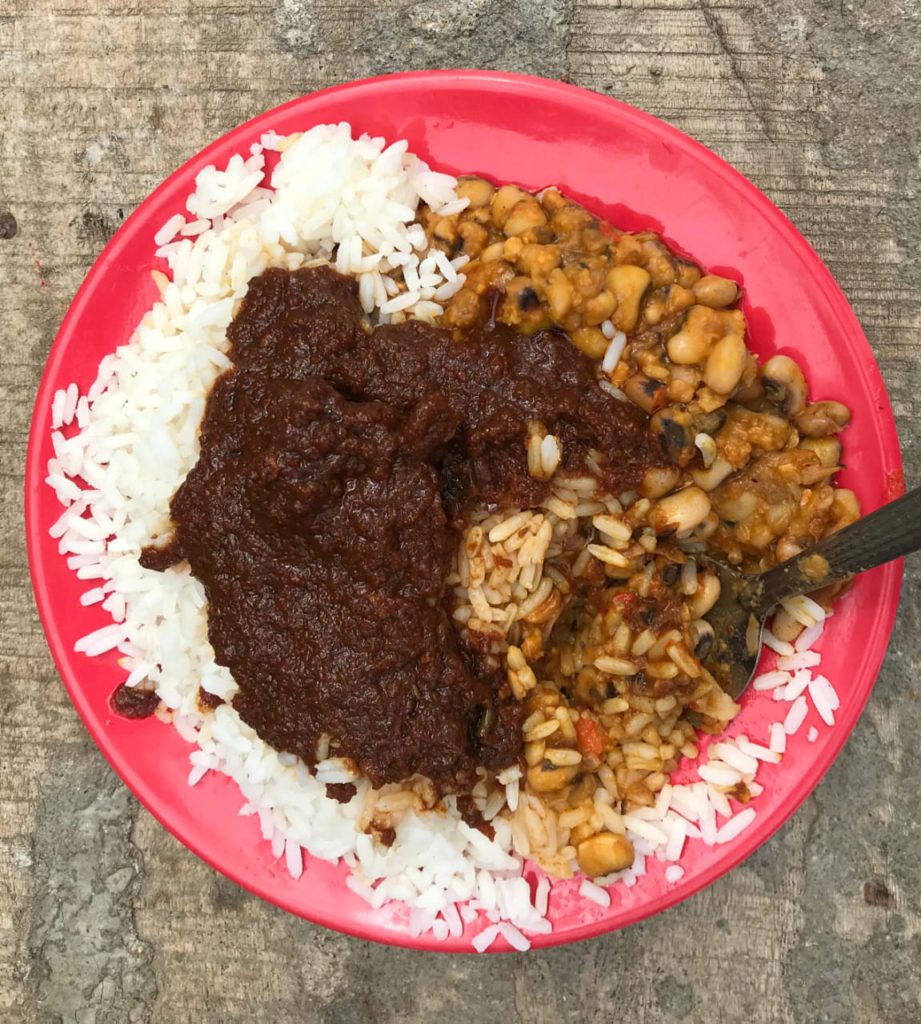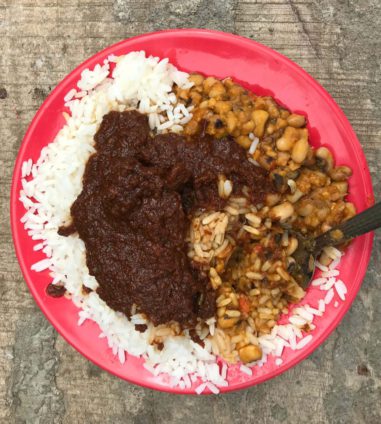2022 should be the year biotech crops get approved in Ghana for the benefit of farmers and the populace, civil society group Alliance for Science Ghana has said.
In a statement signed by Abigail Akoto and Dennis Baffour-Awuah for team Alliance for Science Ghana, the group said “following the passage of the National Biosafety Act in 2011, a lot of work has been ongoing by the Council for Scientific and Industrial Research (CSIR) to introduce various biotechnology crops in the country.”
“These include the Pod - Borer Resistant cowpea or beans (which has been genetically modified to resist attacks by the deadly Maruca pest),” the statement said.
“It is our fervent hope that 2022 becomes the year that science wins once more for this variety to be approved for the benefit of Ghanaian consumers and farmers,” the statement concluded.
As 2022 progresses, team Alliance for Science Ghana extends a happy new year wish to all Ghanaians. 2021 was definitely a difficult “food year” for many. Food prices rose so quickly in ways this nation hadn’t seen in a long time.
Data from by the Statistics, Research, and Information Directorate of the Ministry for Food and Agriculture (MOFA) did put this concern in perspective. Between January and October 2021, the average price of maize rose by 56 percent, price of plantain rose by 74 percent, price of tomato rose by 44 percent, price of yam rose by 20 percent, and price of fresh pepper rose by 54 percent.
Additionally, over that same period, price of cassava rose by about 6 percent, yam by 20 percent and rice by 12 percent. What this means is that it was more difficult for people to buy these foods and others that they needed to stay satisfied and healthy. This is something we must avoid in 2022. And one sure way of keeping food prices under control is investing more in science and technology.
In the health sector however, there was some very good news to report thanks to the power of science and technology in our battle against the Covid-19 pandemic. The past year saw science being hailed in the health sector hugely.
Our research institutions proved their potentials and lived up to the expectations of Ghanaians when they sequenced the genome of the Covid-19 virus, oversaw deployment of vaccines, produced test kits and masks locally, among other innovations to help keep Ghanaians safe.
Clearly, the Covid-19 pandemic has enlightened us as a country on the need to do more investments in the areas of vaccine development, standardisation of health facilities, and other science initiatives.
The power of science and technology as key tools of national development became clearer in the year 2021.
Our hope is that in the year 2022, science continues to win. In 2022, a key area that science needs to help us improve upon is the agricultural sector which is the backbone of Ghana’s economy.
Exploring technologies such as biotechnology has the potential to boost the sector and ensure food security for all. Challenges like climate change, depleting soils and pest attacks will not end just because we wish them away. We need to consciously work towards fighting off these challenges.
Following the passage of the National Biosafety Act in 2011, a lot of work has been ongoing by the Council for Scientific and Industrial Research (CSIR) to introduce various biotechnology crops in the country. These include the Pod - Borer Resistant cowpea or beans (which has been genetically modified to resist attacks by the deadly Maruca pest).
Last year, an application for environmental release of this new variety of beans was submitted to the National Biosafety Authority after 9 years of research on the use of genetically modified technology solution to help deal with the pest infestation on cowpea farms.
It is our hope that 2022 becomes the year that this variety, which was recently approved in Nigeria, becomes widely available to Ghanaian farmers as well.
To control the pest, farmers typically spray their beans fields with pesticides between eight and 12 times in the 12-week life cycle of the crop.
This has implications for both the environment and the health of farmers. The GM cowpea variety developed by the Savannah Agricultural Research Institute (SARI) has proven to be largely resistant to the pest.
Confined field trials have shown farmers can reduce their spraying regime to just twice per season while gaining up to a five-fold increase in yield.

This variety has the potential to make foods like “gari and beans” popularly called “red-red” more available and affordable to help improve upon food security, hence the need for all to support its approval.
It is our fervent hope that 2022 becomes the year that science wins once more for this GMO variety to be approved for the benefit of Ghanaian consumers and farmers.
Latest Stories
-
Kinshasa to host first World Music and Tourism Festival, celebrating rumba
1 hour -
Today’s Front pages: Friday, June 27, 2025
2 hours -
Kamal Deen Sulemana agrees deal with Atalanta
2 hours -
COVID-19 remains a threat – GHS cautions public
2 hours -
Renewed clashes in Nkwanta South leave one dead, several injured
2 hours -
Delay not intentional, let’s maintain good faith – Ayew Afriyie appeals to GRNMA
3 hours -
Ghana makes significant improvement in the 2025 World Competitiveness Report
3 hours -
Local Government Ministry to pilot 24-Hour Economy market
3 hours -
Parliament restores July 1 as Republic Day holiday
3 hours -
Global Summit: World leaders recommit to immunisation amid global funding shortfalls
3 hours -
No further postponements after July 10 – GRNMA warns
3 hours -
US-based Ghanaian petitions Acting CJ over alleged judicial misconduct in land dispute
3 hours -
Farmer punished for stealing assorted items from students
3 hours -
Telecel Ghana expands community footprint in Kumasi with 3 new shops
3 hours -
Decomposing body of 71-year-old retired teacher found in well
3 hours

